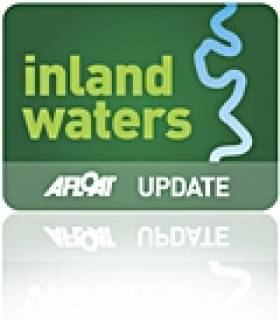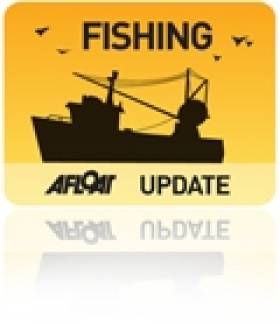Displaying items by tag: Department of Agriculture and Rural Development
Inter-Agency Response to Lough Erne Weed Invasion
A new inland waterways inter-agency response to the rising levels of invasive weed growth on Lough Erne has been launched.
The Lough Erne Invasive Species Group (LEISG) brings together Fermanagh District Council, the Northern Ireland Environment Agency (NIEA), Waterways Ireland, the UK's Departments of Culture, Arts and Leisure, and Agriculture and Rural Development, among others, to tackle the threat posed by the invasive Nuttall's Pondweed.
LEISG says the weed has survived the winter "in significant quantities", and the potential for its rapid spread poses a serious concern for tourism and leisure on Co Fermanagh.
The group has recommended harvesting and weed-cutting as the most effective method to control Nuttall's Pondweed where it may interfere with main channels and access to public amenities.
Management of water levels has also been identified as playing a role in future control of the weed.
Anyone wishing to assist in weed-cutting must contract the NIEA through www.nidirect.gov.uk for permission. More information on invasive species is available at www.invasivespeciesireland.com.
New Fisheries Protection Vessel for Northern Ireland
The FPV was built by AS Baltic Workboats in Estonia and the 25 knot plus craft has already entered on operational duties as part of the Joint Deployment Plan with the Irish Naval Service to underpin fishery protection arrangements.
Layout of the vessel superstructure consists of the wheelhouse for a crew of three and provisional space for two observers. At the aft end there is a wet laboratory for scientific and data collecting purposes. On the lower deck the vessel can accommodate seven crew members in three twin cabins and a single cabin for the captain. Other facilities are the mess, galley and WC.
An onboard RIB, powered by twin 60hp outboards is located aft in the stern-well. Also located at the stern is a two ton capacity movable hydraulic gantry and a one ton Guerra marine deck crane. To create more deck-space for scientific research operations, the stern-well can be covered over with boards, a similar design feature is found on the Revenue Commissioners two Finish built custom cutters RCC Suirbheir and RCC Faire.
In addition to fishery protection, the craft is designed for seabed mapping, survey equipment technology to inspect inshore mussel resources for the
aquaculture industry and to detect pollutants. The ability to conduct such functions will enable greater assistance and understanding of the marine environment for DARD's science partners at the Agri-Food and Biosciences Institute (AFBI).
The design of the Banrion Uladh is based on Baltic Workboats 24m Baltic 2400 class which has been operating for clients in Estonia, Latvia and Poland. In addition the same class is also to be used as a basis for boats which are under construction for the Swedish Coast Guard.

























































